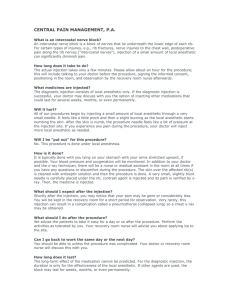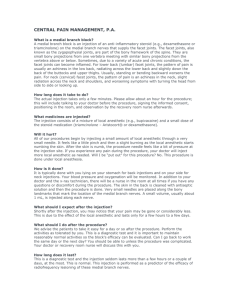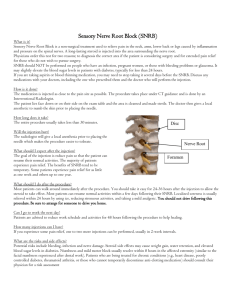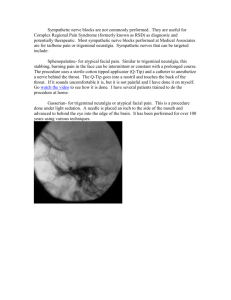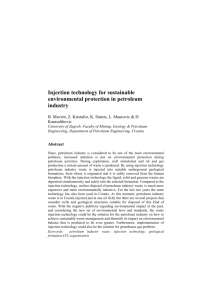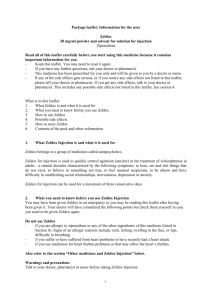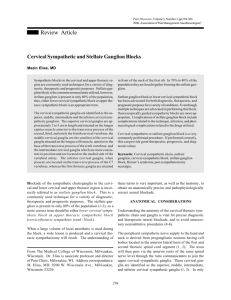Lumbar Sympathetic Nerve Block
advertisement
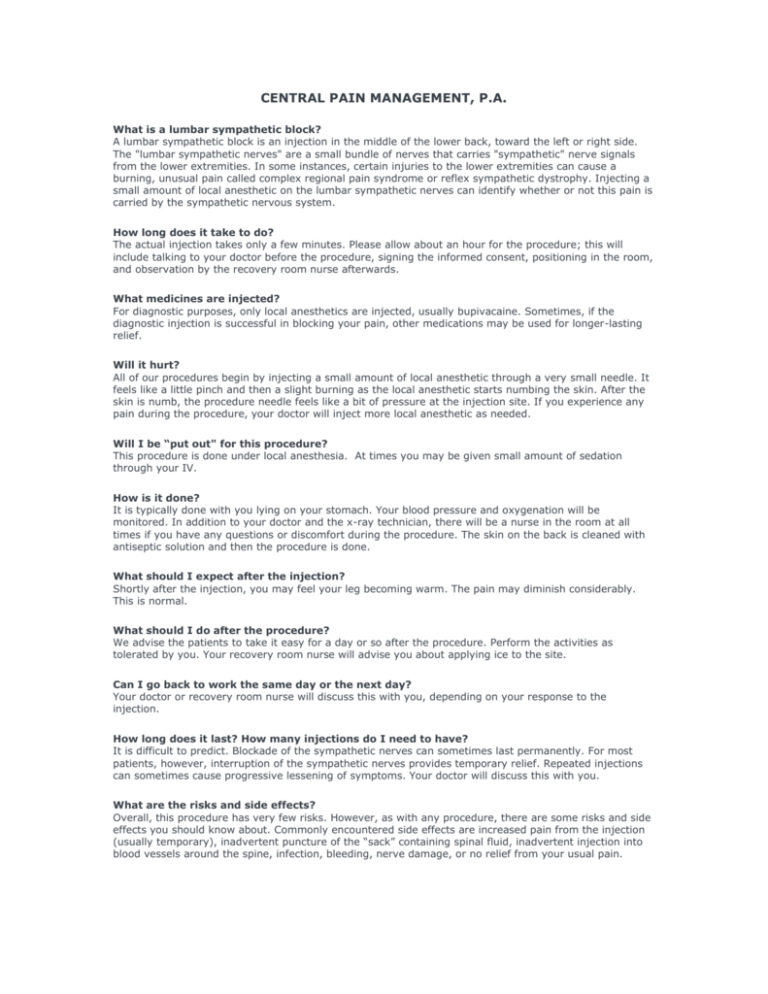
CENTRAL PAIN MANAGEMENT, P.A. What is a lumbar sympathetic block? A lumbar sympathetic block is an injection in the middle of the lower back, toward the left or right side. The "lumbar sympathetic nerves" are a small bundle of nerves that carries "sympathetic" nerve signals from the lower extremities. In some instances, certain injuries to the lower extremities can cause a burning, unusual pain called complex regional pain syndrome or reflex sympathetic dystrophy. Injecting a small amount of local anesthetic on the lumbar sympathetic nerves can identify whether or not this pain is carried by the sympathetic nervous system. How long does it take to do? The actual injection takes only a few minutes. Please allow about an hour for the procedure; this will include talking to your doctor before the procedure, signing the informed consent, positioning in the room, and observation by the recovery room nurse afterwards. What medicines are injected? For diagnostic purposes, only local anesthetics are injected, usually bupivacaine. Sometimes, if the diagnostic injection is successful in blocking your pain, other medications may be used for longer-lasting relief. Will it hurt? All of our procedures begin by injecting a small amount of local anesthetic through a very small needle. It feels like a little pinch and then a slight burning as the local anesthetic starts numbing the skin. After the skin is numb, the procedure needle feels like a bit of pressure at the injection site. If you experience any pain during the procedure, your doctor will inject more local anesthetic as needed. Will I be “put out" for this procedure? This procedure is done under local anesthesia. At times you may be given small amount of sedation through your IV. How is it done? It is typically done with you lying on your stomach. Your blood pressure and oxygenation will be monitored. In addition to your doctor and the x-ray technician, there will be a nurse in the room at all times if you have any questions or discomfort during the procedure. The skin on the back is cleaned with antiseptic solution and then the procedure is done. What should I expect after the injection? Shortly after the injection, you may feel your leg becoming warm. The pain may diminish considerably. This is normal. What should I do after the procedure? We advise the patients to take it easy for a day or so after the procedure. Perform the activities as tolerated by you. Your recovery room nurse will advise you about applying ice to the site. Can I go back to work the same day or the next day? Your doctor or recovery room nurse will discuss this with you, depending on your response to the injection. How long does it last? How many injections do I need to have? It is difficult to predict. Blockade of the sympathetic nerves can sometimes last permanently. For most patients, however, interruption of the sympathetic nerves provides temporary relief. Repeated injections can sometimes cause progressive lessening of symptoms. Your doctor will discuss this with you. What are the risks and side effects? Overall, this procedure has very few risks. However, as with any procedure, there are some risks and side effects you should know about. Commonly encountered side effects are increased pain from the injection (usually temporary), inadvertent puncture of the “sack” containing spinal fluid, inadvertent injection into blood vessels around the spine, infection, bleeding, nerve damage, or no relief from your usual pain. Who should not have this injection? The following patients should not have this injection: if you are allergic to any of the medications to be injected, if you are on a blood-thinning medication (e.g. coumadin, injectable heparin), or if you have an active infection going on.
